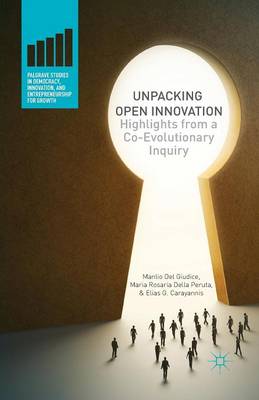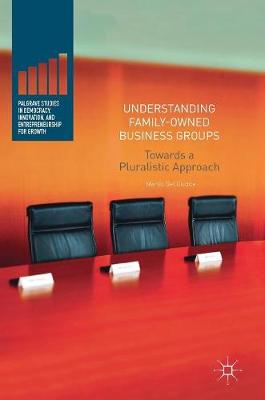Palgrave Studies in Democracy, Innovation, and Entrepreneurship for Growth
3 total works
Unpacking Open Innovation
by Manlio Del Giudice and Maria Rosaria Della Peruta
Del Giudice, Della Peruta, and Carayannis fill the gap in our understanding of this emerging research field of open innovation. Their work depicts the major tendencies of publications through identifying the main themes in literature and investigating the research frontier. It also discusses potentially important fields of investigation that are still left rather unexplored.
This book provides readers with a core understanding of how both corporate governance and business strategy are shaped by the institutional frameworks of markets, as well as knowledge into how institutional context shapes the governance and strategies of family business groups. It is an invaluable reference tool for scholars and students in the social sciences, as well as professionals involved in strategic management issues within a knowledge management context.
The Satisfaction of Change
by Manlio Del Giudice and Maria Rosaria Della Peruta
This book analyzes the impact of the digital economy on customer satisfaction, shopping experience, resistance to change, script theory, and loyalty. The model introduced assumes that online markets have led to a redefinition of the concepts of loyalty and shopping scripts as a way to reduce customers’ cognitive effort, by optimizing purchase time and increasing the speed and satisfaction of the shopping experience. It describes the utility function of the script by retaining customer loyalty and making the customer more reluctant to abandon his regular supplier. It also explores the difficulty faced by the higher churn rate on the Internet and the minimization of search costs, by integrating more functionality to achieve the ultimate goal of behavioral and cognitive loyalty.
The authors provide an analysis in a "digital" view of the economic theory of switching costs and the resulting lock-in mechanisms which, in a classical economy, are often a barrier to disloyalty. It is auseful and effective tool for online businesses, their main managerial and strategic implications, and the adaptability to existing contexts.


